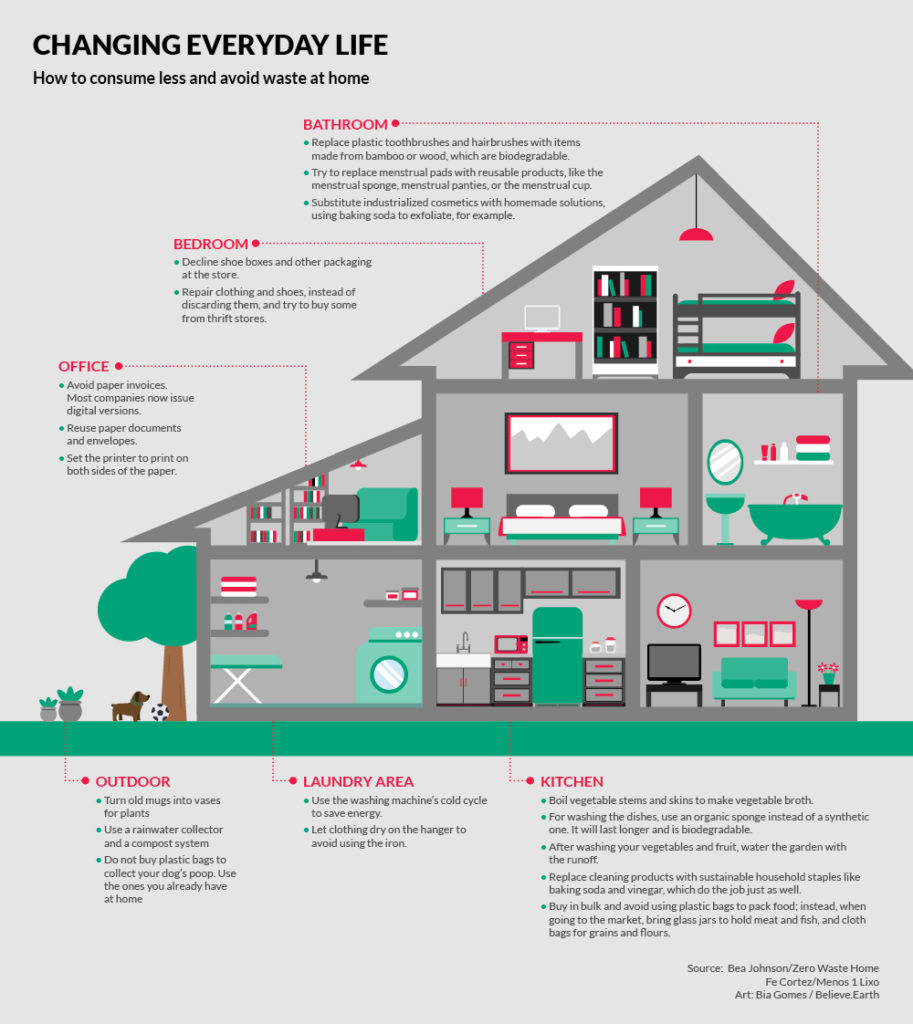
Sustainable Living: Zero-Waste Home Practices
Living a zero-waste lifestyle is an admirable commitment to reducing environmental impact and embracing sustainability. Discover practical and achievable zero-waste home practices that contribute to a greener and more eco-friendly way of living.
Mindful Shopping and Packaging Choices
Zero-waste living begins with mindful shopping habits. Opt for products with minimal or compostable packaging. Bring reusable bags, containers, and produce bags to avoid single-use plastics. Consider bulk shopping to reduce packaging waste and choose products with eco-friendly packaging materials.
Composting: Transforming Food Waste into Gold
Food waste is a significant contributor to household garbage. Embrace composting as a zero-waste solution. Set up a compost bin for fruit and vegetable scraps, coffee grounds, and other compostable materials. Compost not only reduces landfill waste but also creates nutrient-rich soil for your garden.
Reusable Alternatives to Single-Use Items
Replace single-use items with reusable alternatives. Invest in stainless steel or glass water bottles, reusable shopping bags, and cloth napkins. Swap disposable razors for safety razors with replaceable blades. These simple switches significantly reduce the amount of waste generated in your home.
DIY Cleaning Products: Eco-Friendly and Cost-Effective
Commercial cleaning products often come in disposable packaging. Make your cleaning solutions using simple ingredients like vinegar, baking soda, and essential oils. Not only are DIY cleaning products eco-friendly, but they also save money and reduce the need for single-use plastic containers.
Mindful Meal Planning to Minimize Food Waste
Meal planning is a key strategy to minimize food waste. Plan your meals, create shopping lists, and use leftovers creatively. Be mindful of expiration dates and organize your pantry and refrigerator to ensure that items are used before they go bad. This approach not only reduces waste but also saves money on groceries.
Zero-Waste Bathroom Practices
The bathroom is another area where zero-waste practices can be implemented. Switch to bamboo toothbrushes, refillable dental floss, and package-free soap bars. Choose shampoo and conditioner bars instead of bottled products. Consider using a safety razor instead of disposable plastic razors for a more sustainable shaving option.
Upcycling and Repurposing: Giving Items a Second Life
Upcycling involves transforming old or discarded items into something new and useful. Get creative with repurposing items, whether it’s turning old jars into storage containers, using fabric scraps for DIY projects, or creating art from items that would otherwise be thrown away. Upcycling adds a unique touch to your home while reducing waste.
Clothing Consciousness: Sustainable Wardrobe Choices
Fast fashion contributes to a significant amount of textile waste. Embrace a sustainable wardrobe by investing in quality, timeless pieces and choosing second-hand or vintage clothing. Donate or repurpose old clothes rather than discarding them. Sustainable fashion choices are not only eco-friendly but also promote a more mindful approach to consumption.
Eco-Friendly Energy and Water Conservation
Reducing your environmental footprint goes beyond waste management. Implement energy and water conservation practices to make your home more eco-friendly. Use energy-efficient appliances, switch to LED bulbs, and turn off lights and electronics when not in use. Conserve water by fixing leaks, using low-flow fixtures, and collecting rainwater for watering plants.
Educating and Inspiring Others
Share your zero-waste journey with others to inspire positive change. Educate friends and family about the benefits of zero-waste practices and provide practical tips for getting started. Encourage community initiatives, such as neighborhood cleanups or zero-waste challenges. Spreading awareness creates a ripple effect, contributing to a collective commitment to sustainable living.
Conclusion: Embracing a Zero-Waste Lifestyle
In conclusion, adopting zero-waste home practices is a powerful way to contribute to a sustainable and eco-friendly lifestyle. From mindful shopping and composting to embracing reusable alternatives and upcycling, every small change makes a meaningful impact. By incorporating these practices into your daily life, you not only reduce waste but also inspire others to join the journey towards a greener future.
For more insights on zero-waste living and sustainable practices, visit Zero-waste home practices and explore a wealth of information and resources to guide you on your sustainable living journey.
